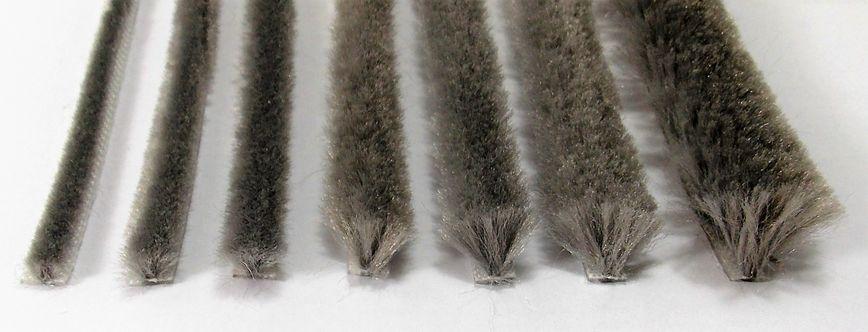In truth, Industrial Door Seals for doors and windows are designed to ensure that the two components of a window, namely the frame and the opening and closing sashes, do not have any gaps between them through which they could transfer draughts, humidity, water, and heat.
The operation of the entire window could be compromised if the frame and doors moved due to minor wind gusts. Due to its elastic memory, the rubber gasket fills the area left when the two pieces are separated, stopping the passage of air, and preventing heat dissipation. It is important to choose the right seals because doing so extends the life and strength of the frame, as mentioned in our article "Seals for wooden windows: This is why you should not underestimate them." When installing a product, it is best if it complies with a few structural requirements. These requirements are most commonly seen in automobile gaskets.
Outstanding levels of softness and elastic memory; and Resistance to thermal changes in the best way possible.
The colour of the gaskets is also crucial; they must typically be black because it enhances their flexibility and resistance while adding dyes will cause them to break down after a few years, resulting in the gasket hardening, which lowers performance. Install gaskets that promise an elastic memory equal to 80% of the initial one even after 10 years of installation to provide the optimum outcome and performance.
The benefits of thermal insulation
For several reasons, the insulation of a security door is unquestionably a crucial component.
You may first expect complete protection from atmospheric contaminants thanks to the insulation provided by gaskets. This is especially true if your security door is installed in a type of entrance that connects to the outside immediately. In any case, even if your home's security door can see inside a condominium building, dealing with draughts that prevent you from completely appreciating the warmth of your heating is undoubtedly very frustrating.
Another benefit is the reduction of numerous outside disturbances, making the moments of relaxation at home much more serene.
Armoured door seals
Foam rubber and sponge rubber gaskets are the two options for armoured door seals. Due to its vital purpose concerning memory foam, foam rubber is one of the most expensive and effective compounds. When a gasket of this type is crushed, it compresses; yet, when it is released, it restores its original shape. By doing this, you can be sure that your security door will operate better and be much more adaptable.
The sponge is typically used for the gaskets on armoured doors. Because the sponge is so soft and moulds so well to the door, you may choose this option. One of its drawbacks is that it is less durable when it comes to usage period. Because the sponge has a propensity to dry out and then harden up to crumble in specific areas, its approximate lifespan is a few years. Unquestionably, this is one of the reasons why foam rubber is used more frequently on the market.
Foam rubber falls under the category of materials that are considerably more durable and resilient, even though it also falls under the more expensive type. When purchasing, you must pay close attention to choosing the right thickness for the door and the frame. Over time, gaps in the security door may develop due to the seals' deterioration. As a result, the latter results in air currents that, upon entry, obviously damage the ambient thermal insulation, increasing energy consumption.
Soundproofing: Brilliant glimmers that exacerbate the separation from light.
From this, you can infer how essential it is to thoroughly inspect the gaskets to determine whether they need to be replaced or not. All you need to do to understand this is insert a sheet of paper to see if there is a space between the door and the frame. If the sheet moves through with no issues, it is obvious that the existing gasket is no longer functional and needs to be replaced. Ultimately, choosing the best gasket for an armoured door will provide you with a significant thermal insulation benefit.



